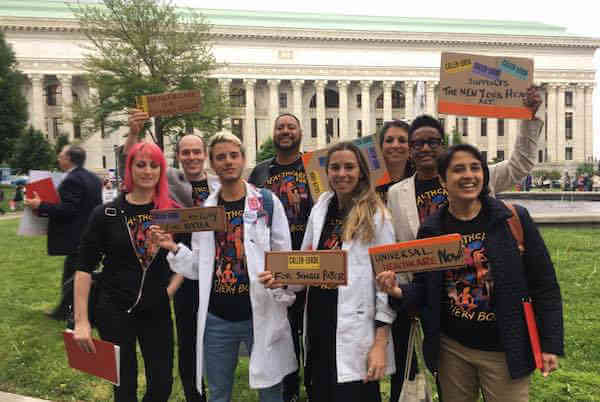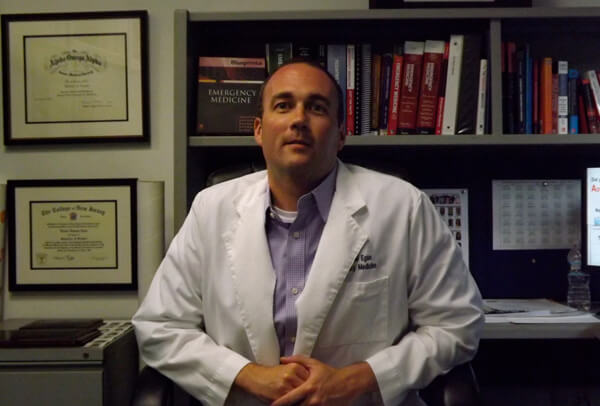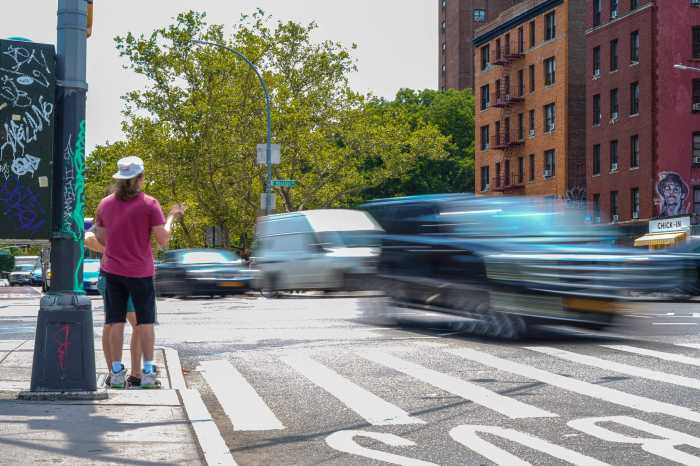Truly universal comprehensive health care is critical to the goal of equity for all and should be a primary objective today’s LGBTQ agenda.
Like many marginalized communities, LGBTQ people still face major gaps in insurance access, with the Center on American Progress finding that at least 15 percent still lack insurance post-Affordable Care Act (ACA) implementation. However, health issues impacting this community cannot be managed without proper access to care. Barriers to accessing health care, especially for the treatment of chronic health conditions, can prevent timely treatment and result in ultimately worsened health.
While the ACA expanded access to care and provided discrimination protections for LGBTQ communities, coverage is not universal and stigma still exists. LGBTQ patients continue to experience discrimination when accessing health services and, if denied treatment, often have trouble finding alternative services. In a recent Center on American Progress survey, among patients discussing experiences of visiting health care providers, nearly 10 percent of LGBQ and nearly 30 percent of transgender patients reported being refused care because of their actual or perceived sexual orientation or gender identity. Such interactions can prevent patients from receiving treatment, with more than one if five transgender patients reporting they avoided or postponed needed treatment due to discrimination.
Recent anti-health care efforts at the federal level pose a further threat to LGBTQ individuals. However, this threat provides an opportunity for transformative advocacy. Support for single payer health care, which would replace the countless available health insurance options with one government-run plan, grows daily. And, the ACA and marriage equality have demonstrated that state level innovations can lay the groundwork for national policy change.
New York State has a single payer bill: the New York Health Act (NYHA). Passing this bill could position New York as a health care pioneer, making single payer a reality for the first time in America. It’s an unprecedented opportunity to disrupt a health system fueling inequities based on race, gender, income, geography, gender identity, and sexual orientation.
NYHA would provide universal comprehensive health coverage for every New Yorker. Using a progressive tax model based on ability to pay, NYHA would cover all medically-necessary services without premiums, deductibles, or co-pays. The bill has popular support; it’s passed in the State Assembly the last four years and has near majority support in the Senate.
With no administrative or health care provider costs associated with insurance, NYHA would save billions and promote a more equitable New York. Employer-based health insurance is failing to adequately insure employees. Health care costs are growing faster than worker incomes and most employers lack the staff and expertise to bargain in today’s intricate health care markets, forcing employees to pay more.
Single payer could change that, and, in the process, strengthen non-profits to focus on the important work that drives their mission rather than seeing precious resources siphoned into covering their employees’ health care costs. For example, Callen-Lorde Community Health Center, which sees 18,000 primarily LGBTQ patients annually and pays 100 percent of its employee health care costs, estimates that a single payer health system would save them more than $3.5 million dollars annually, thanks to the lower costs of employee health benefits and the lack of administrative patient costs. This is money Callen-Lorde could reinvest in staff and patients. More than 5,700 currently uninsured Callen-Lorde patients would have the same access to quality care as our state legislators. And, Callen-Lorde could reclaim possibly thousands of hours spent fighting insurance plan denials for gender affirming care and chasing claims. More people will have a stronger health system with the same — or better — care as they do now.
Health equity gives everyone the chance to live healthier lives. Those committed to health equity for LGBTQ New Yorkers — and all vulnerable populations — must fight for truly universal health care. We have everything we need to manifest health justice in our state and further LGBTQ liberation. We can make that happen by passing the New York Health Act.
The time to mobilize is now.
Kimberleigh Smith is senior director for community health planning and policy at Callen-Lorde Community Health Center, which provides sensitive, quality health care targeted to New York’s LGBTQ communities regardless of ability to pay. Winn Periyasamy is a health policy analyst, whose expertise includes AIDS/ HIV and single-payer health care, at FPWA, a New York-based anti-poverty advocacy nonprofit.


































